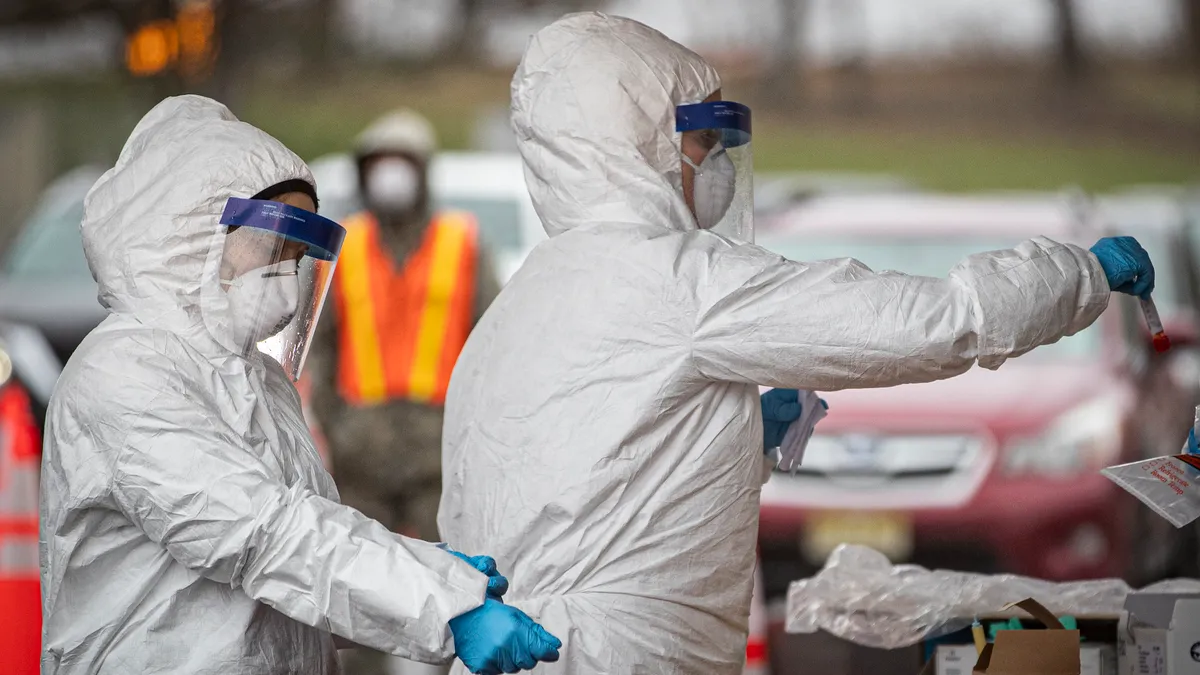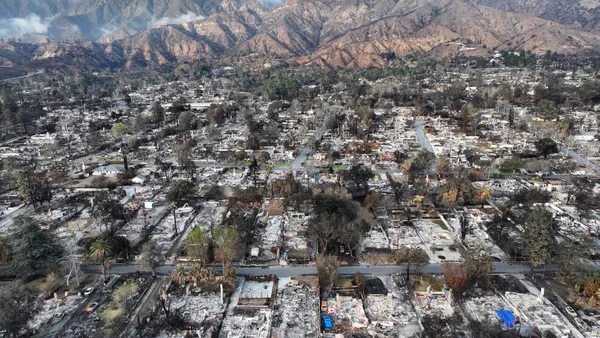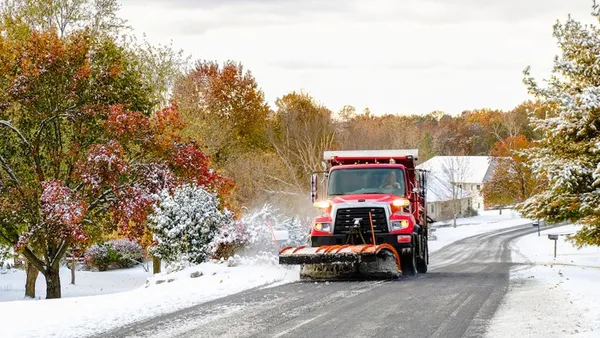A national outbreak of the new coronavirus (COVID-19) is wreaking havoc on the timeline of the 2020 census, forcing the U.S. Census Bureau to postpone deadlines and cities to re-think engagement efforts.
The Census Bureau recently detailed changes to the census schedule, including an extension on the deadline for online self-responses (moved from July 31 to Aug. 14). It also suspended all field operations until April 15 and temporarily nixed in-person interviews for surveys.
Regardless of these changes, the Census Bureau said it does not anticipate any delay in transmitting census data to President Trump by Dec. 31 as planned, and then delivering counts to states by April 1, 2021 for legislative redistricting.
On a March 20 conference call with reporters, Timothy Olson, associate director for field operations at the U.S. Census Bureau, said the timeline could still shift depending on developments at the local level and updated recommendations from health departments.
"These are current plans, revised dates, but all of them are dependent, and are being evaluated on a daily basis, in light of local conditions and there could be further changes," Olson said during the call.
Initial response rates to the census appear to be picking up despite current complications. As of March 31, 36.2% of households had filled out the census, according to the Census Bureau's response rate map. Albert Fontenot, associate director for decennial programs at the U.S. Census Bureau, said during the conference call the rate is "on track" despite the continued spread of COVID-19.
But keeping the count on track could be further complicated in reaching hard-to-count populations, including college students, most of whom have left campus to take online classes and prevent the spread of COVID-19 among peers. Fontenot and Olson said there are plans in place to ensure they are still counted properly, but it could be a further headache for census officials.
Even with stretched-out deadlines, some mayors are urging the Census Bureau to further extend the response window. New York City Mayor Bill de Blasio issued a call for 2020 census operations to be extended, with NYC Census 2020 Director Julie Menin stating the U.S. Census Bureau "must acknowledge that the COVID-19 pandemic is a barrier to an accurate count and that a lack of a timeline adjustment may result in an inaccurate or incomplete count."
Additionally, in a letter sent last week to Census Bureau Director Steven Dillingham, a bipartisan group of 40 mayors from some of the largest U.S. cities said the response deadline should be extended from Aug. 14 to Sept. 30. The mayors also argued that the bans on large gatherings and the introduction of social distancing policies have limited cities' ability to carry out public events designed to get out the count, like meetings, workshops and door-to-door canvassing.
Today, I sent a letter alongside 40 bipartisan mayors calling on the Census Bureau to extend the response deadline for the 2020 Census because of the COVID-19 pandemic. Learn more here: https://t.co/x9tIp1FpJU
— Mayor Jenny Durkan (@MayorJenny) March 26, 2020
"We know that none of these tried and true outreach methods are possible in the midst of the COVID-19 pandemic, and that any Census count that occurs without this outreach will cause an historic and extremely damaging undercount," the mayors wrote. "If the Census Count is rightly delayed, we will be able to fully activate our network to connect with our community, in particular our historically undercounted communities."
With field operations suspended, Census Bureau officials said it is even more important for people to respond to the census either online or by mail.
"It has never been easier to respond on your own," Olson said, noting a "vast majority" of the public will likely self-respond due to the current bevy of accessibility options. However, a partial reliance on technology (for online responses) has sparked some concerned, given an existing digital divide and an increase in cyberattacks as coronavirus spreads.
Cara Brumfield, a senior policy analyst at the Georgetown Center on Poverty and Inequality, told Smart Cities Dive earlier this year that even self-response methods like filling out the census online or by mail have their issues.
"'Get out the count' efforts are going to have to get more creative and lean more on digital for outreach, but who does that leave behind? I imagine the same people who are facing the digital divide in the first place and have less access to the internet to fill out their form that way," Brumfield said at the time.
Seattle Mayor Jenny Durkan said unequal access to broadband internet could also have far-reaching consequences for the $1.5 trillion of federal funds at stake.
"Without equitable access to broadband, any refusal to extend this deadline will ensure an historic undercount in the Census, which I trust is neither the President's nor the Census Bureau's goal," Durkan said in a statement.
In a way, the current pandemic illustrates how vital it really is for citizens to fill out their census forms and ensure their communities get appropriate funding for services like hospitals, school meals and other infrastructure, Fontenot said.
"Even though many things may seem uncertain at the moment, one thing isn't: the 2020 Census this year, it’s important to our nation that everyone respond," Fontenot said on the call. "The current situation underscores the need for census data."
To keep up with all of our coverage on how the new coronavirus is impacting U.S. cities, visit our daily tracker.











